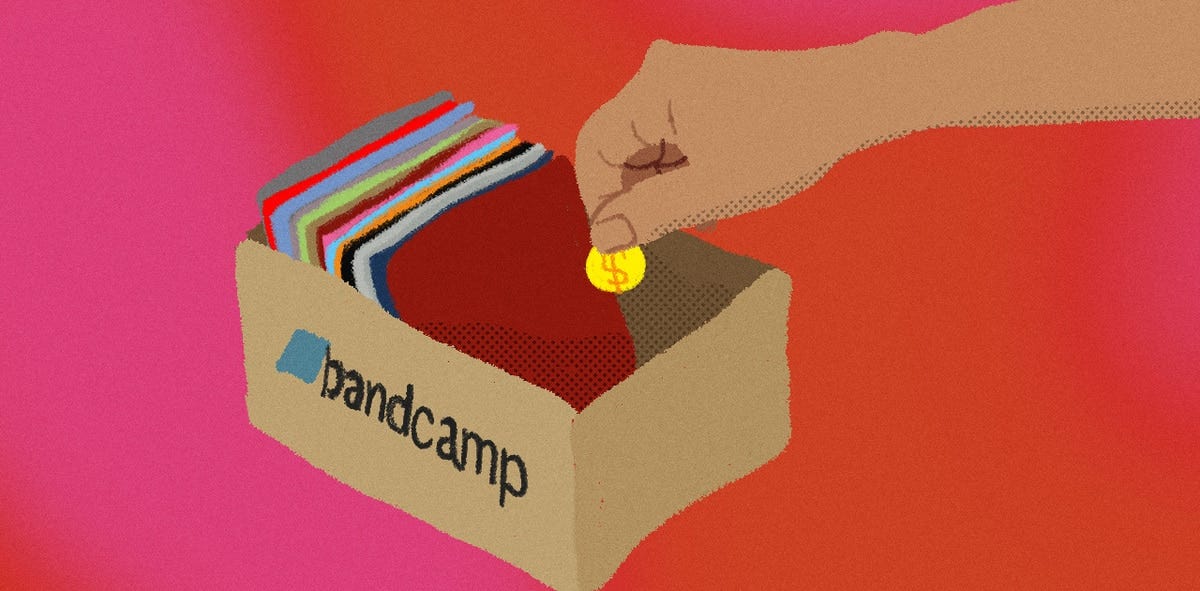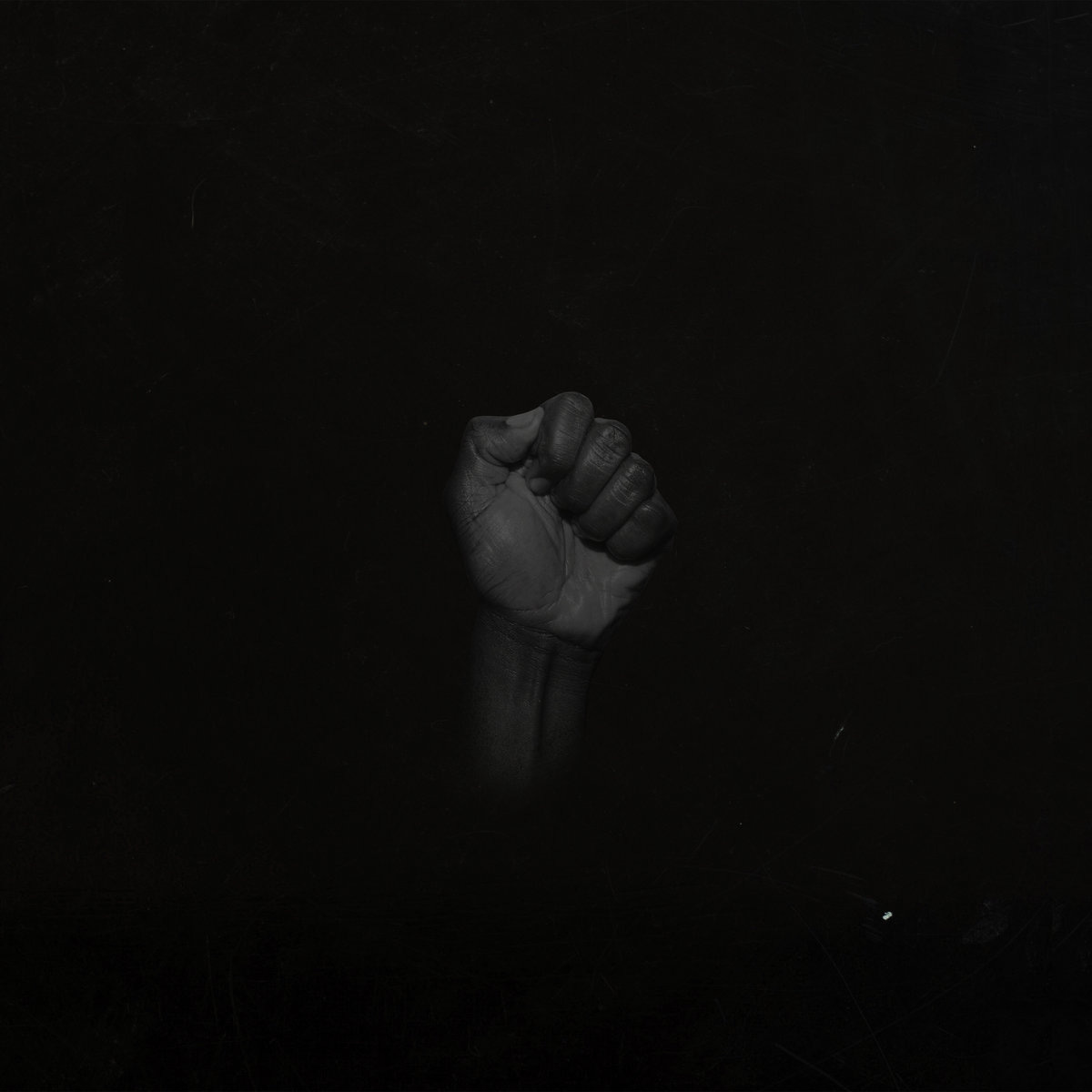If 2020 reminded us of anything, it’s that we don’t all experience one thing the same way - and that’s true of music. So is it any surprise that ranked ‘end of year’ lists are beginning to feel unsavoury? Not just because picking a “best” album is like choosing your favourite mood - ranked lists also serve unfair biases against womxn in Jazz.
Let’s take it back; in 2020, Bandcamp further established how firm their moral compass is. The platform launched monthly Bandcamp Friday dates, waiving their revenue share on the first Friday of the month in order to support artists through the pandemic; a total of $40 million dollars was spent on Bandcamp Fridays in 2020. On 17 June, Bandcamp donated the entirety of their profits from a 24 hour period to the NAACP Legal Defense Fund. Topping the year off, an announcement from Bandcamp in December shared that they would no longer be ranking their ‘end of year’ album lists - no more #1 slot.
Much like the growing disdain for algorithmic listening habits, we’re being reminded to develop our own taste, and not have it be fed to us. Bandcamp are the ultimate trend setters in the independent music industry; their decision signals positive change in how we value and critique music.
Reviewing music has been central to the music press since its earliest days. As well as providing a critique to a piece of work, it also stands as a statement to readers; here’s who and what we stand by, and here are our values. By and large, the albums ranked #1 in various end of 2020 lists reflect the sound style of a publication:
Albums ranked #1 in end of 2020 lists:
The Guardian and Pitchfork \\ Fiona Apple - Fetch the Bolt Cutters
Jazzwise \\ Maria Schneider - Data Lords
Billboard \\ Taylor Swift - Folklore
Crack \\ Duval Timothy - Help
Clash \\ Chloe x Halle - Ungodly Hour
NPR \\ Sault - Untitled (Black Is)
Bandcamp weren’t alone. Mixmag also picked up on a change in the wind, switching from a ranked list in 2019 to contributor-lead recommendations from aligned tastemakers in 2020. Downbeat continued its usual format of re-presenting reviews from throughout the year in order of how many stars they were awarded. This is a modest method that removes vanity from the act of the announcement, however, it doesn’t leave room for albums to develop new meaning or context throughout the year. On the contrary, perhaps that’s not so problematic; culture is made up of a series of mirrors; art reflecting the people, reflecting the art. There’s not much to stop an end of year list becoming a reflection of reader’s reactions.
Nothing about reviewing music is as straight forward as it seems. Personal bias doesn’t end at someone’s preference for the music itself - it also contends with systemic prejudices.
On Tuesday, NPR published Equal At Last? Women In Jazz, By The Numbers and I implore you to read it. Using the NPR Music Jazz Critics Poll as its primary case study, seven female Jazz journalists investigated the evolution of gender equality in the genre. It didn’t only focus on the gender of the musicians voted for - but the gender of the critics. In 2019 - the 2020 poll is yet to be published - just 7% of the 141 critics involved were female; this is the highest number of womxn in its history. The poll’s founder, Francis Davis, is aiming for more womxn - especially younger womxn and womxn of colour - to be involved in the next one. Unfortunately in Jazz journalism, this is no anomaly. The reasons for which will be the focus of a future EZH newsletter issue.
Journalists Lara Pellegrinelli, Shannon J. Effinger, Jordannah Elizabeth, Kira Grunenberg, Rachel Horn, Georgia Sebesky and Natalie Weiner crunched some numbers and discovered something that makes me shiver;
“The outcome of the poll depends in part on who votes in it. Women and men exhibit different voting preferences along gender lines; an analysis of the individual ballots from 2017, 2018 and 2019 shows that women critics were approximately one and a half times more likely to vote for projects led or co-led by women musicians than their male counterparts”.
This matters. End of year ‘best of’ lists inspire our listening habits. If a list exhibits far less womxn than men, it says more about the pool of critics than female musicians. However, we don’t necessarily pick that up when we’re just looking for inspiration. We simply look at who’s at the top of a ‘best of’ list, and turn to Bandcamp or Spotify to check them out. Yes, the albums at the top will be there out of merit; it’s not about a #1 album not being worthy - it’s about considering who lost out and why.
In Jazz polls, the number of albums that appear from male artists outweigh the number of those by female artists. If albums are ranked, then we risk perpetuating an illusion that men release more albums worth celebrating than womxn do.
This might feel like a misguided conclusion. “Hey Tina, do you realise that a bunch of the highest ranked albums you picked out in the list above are by women? Your argument’s flawed”.
I hear that, and I raise you; this is a complex topic. Systemic bias hasn’t evaporated just because a few female musicians have claimed the top spots in 2020, especially when we’re looking directly at various Jazz polls. Lists of top albums in the Jazz press are overwhelmingly male - as are the judging panels. Having a woman claim the top spot doesn’t eradicate the lack of balance in the rest of the list. Instead, it fetishises their success. It says, ‘this woman is different to the others’.
That’s why Bandcamp removing their ranking system is important. It doesn’t only show recognition that music is subjective. It’s also one step towards fairer gender representation in music.
Jobs & Opportunities in Jazz and beyond
Do check out the previous newsletter where some listings are still active. Jobs are mostly UK orientated.
Got what it takes to manage Music Business Partnerships for Apple? Take a bite.
Amazon are seeking a prime candidate for Senior Content Program Manager of Digital Music.
Passionate about new music? BBC Introducing are looking for new hosts for their Berkshire and Northampton shows.
Arts Council England would like a London based assistant.
Social media your thing? Universal are seeking a specialist.
In NYC, Sony are looking for a lucky someone to fill the role of Director, Editorial & Programming – Hip Hop & R&B.
BBC Wales are looking for both a Digital Producer and Head of Artistic Production, with an ear for Classical music.
World Heartbeat Music Academy - who have been known for their progressive Jazz vocal classes - are counting on a Finance Manager.
You’ve got a few days left to apply for Learning and Participation Officer at the Royal College of Music.
Penguin Random House are seeking a bookish audio editor.
WePresent have been responsible for some fantastic music and culture content; they’re looking for an Amsterdam based Editorial producer.
Jazz loving brand Carhartt want a Marketing Manager in Milan.
Album of the Week \\ Menagerie - Many Worlds
With Horatio Luna, 30/70, Mildlife and more already holding it down, Melbourne continues to allure the ears of Jazz fans; interchanging nine-piece Menagerie are the next to grab our attention.
The outfit is lead by producer, songwriter, guitarist, DJ and recording artist Lance Ferguson, who invited some of Australia’s most experienced Jazz musicians to join him for Menagerie’s third album, Many Worlds. They include pianist Mark Fitzgibbon, who made regular appearances at Gilles Peterson and Patrick Forge’s Dingwall sessions here in London, and vocalist Fallon Williams who contributes a poetic verse on Free Thing (above). The title track - yet to be released on Bandcamp - is a meditative offering with a hypnotic ostinato that swirls and flirts with its responding solos.
Hope is a glistening opener that sets the band’s spiritual Jazz leanings in motion. Whilst it does evoke Kamasi Washington’s Change of the Guard, it holds its own merit by building momentum alongside its ‘end of the night’ dance floor sways. Many Worlds released via Freestyle Records this Friday. Pre-order here.
News and Notable
In case you’ve been hiding under a rock over lockdown (don’t blame you), the UK government rejected an EU offer of visa-free touring for musicians. Read more.
Don’t forget; Jazz re:freshed is back every Thursday. Watch online, here.
Moses Boyd talks in depth about Miles Davis’ Nefertiti for Classic Album Sundays’ new series, My Classic Album. Watch the stream this Sunday at 8PM.
Arts Council England has announced a second round of the Culture Recovery Fund.
This Saturday, UK collective Scrapbook Mixtape join me on Worldwide FM.
Industry festival Jazzahead is moving online this year, taking place 29 April - 2 May.
If you’re between 18-25 and based in Bristol or Somerset, this is a great opportunity with Black Acre Records.
Groovalo Record Club recently launched their vinyl subscription service, including a Jazz option.
Penny King (RWCMD), Paula McColl (Moving on Music), Orphy Robinson (Ivors Academy/Musician) and Roger Wilson (NYJO) have been elected to JPN’s board of trustees.
EZH is written for you and is delivered into your inbox every fortnight.
Tell us what you’d like to see more of - or even less of. Meanwhile, if you read something in our newsletter that will interest a colleague or friend, why not forward it on?
Thank you, Tina x







Woman: there fixed it for you. Maybe not erasing them in your own stable as a start will help.
I have some sympathy with the premise, especially the unwitting (or perhaps sometimes witting) bias caused by the hugely disproportionate number of male critics. What I'm less sure about however, is the idea that 'best' lists are no longer appropriate. I agree that "...we don’t all experience one thing the same way...", however, how else can one get across how much you REALLY want people to recognise how great an album/gig/piece of music is? In this very article you have posted an 'album of the week'. Is this not a microcosm of the same process involved in ranking albums of the year/decade/century, etc?
I admit I too fall foul of the impact of reviews, simply due to the overwhelming amount of music available and needing help to decide what to try out. I realise that's the key point you are making - under-representation of women especially women of colour is an unfortunate consequence for the reasons you've articulated, however I wouldn't confine that issue to 'best' lists, but to all commentary about releases/gigs. If a critic raves about an album, I'm more likely to check it out than if someone calls an album "weak/derivative/uninspiring", etc. I am inevitably being influenced by the critic (still better than a streaming service algorithm by far, however). Great debate though, thanks Tina.
Anyway - typo alert - you've said "deplore you.." to read the NPR article - you meant "implore you.."!
PS Totally as an aside, "Data Lords" and Laura Jurd's Dinosaur "To The Earth" were in my top three 2020 albums ( & the other isn't 'jazz'), but I'm just a music consumer, not a professional critic.